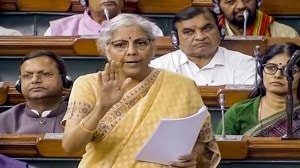Microsoft Research India Lab (MSR India) conducts research across a wide spectrum of topics spanning foundations of computer science, systems, security, Machine Learning (ML) and Artificial Intelligence (AI), human computer interaction, and the role of technology in solving societal issues. One of its key projects —99DOTS—is a good example of cutting-edge research in healthcare; a low-cost innovation for medication adherence for tuberculosis that is being adopted by the government on a large scale. “Our researchers are curious and bold, and we have a track record of pushing the frontiers of knowledge in theory as well as real-world systems,” Sriram Rajamani, managing director, Microsoft Research India Lab, tells Sudhir Chowdhary in an interview. Excerpts:
How would you describe the journey of Microsoft Research India since its inception in 2005?
We have been through several phases. The initial phase was really a buildup phase, the challenge was really to attract talent because every research lab relies on top talent. I think the first five or six years was really spent on attracting the best people. One of the challenges was paucity of researchers in India—at least at that time it was producing very few PhDs—even as many Indians with PhDs (like me) were living abroad.
The second phase was to figure out how to collaborate with the local academic ecosystem. We have a small number of top tier institutions like the Indian Institutes of Technology and Indian Institute of Science and even these have much better undergraduate talent at the level of B.Tech or M.Tech and fewer PhDs. Therefore, the challenge was how do you build a research lab in such an environment. This is why we started programmes like the Research Fellow programme where we attracted talent at undergraduate level and helped them.
The third phase was that during this time we worked on a variety of problems and over time figured out what are the areas in which we have unique expertise. We have understood areas such as algorithms in certain aspects of Machine
Learning, computer system, technology and society. We have identified areas where we have a critical mass of people and a unique flavour of research to offer.
MSR India conducts research across a wide spectrum of topics spanning foundations of computer science, systems, security, ML and AI, human computer interaction, and the role of technology in solving societal problems. Our researchers are curious and bold, and we have a track record of pushing the frontiers of knowledge in theory as well as real-world systems. We collaborate freely with academia, and play an active role in mentoring and training young researchers.
What are the key focus areas of research for MSR India?
We have four areas in which we have a strong focus. The first area is algorithm and data science which is the mathematics behind ML. The second area is AI and ML itself which is pure and applied research and ML. That also includes natural language processing, which is understanding human language—something that is very important in India because we have so many languages.
The third area is computer system design which is programming languages, compilers, networking, databases. The fourth area is technologies for emerging markets which studies the role of technology in socio-economic development. In some sense you should think about Microsoft Research as a facility wherein we try and apply advanced scientific concepts, be it AI, cloud, etc., to solve large-scale real-world problems.
Do you take up any India-specific research?
India is a very interesting testbed for innovation for us because, unlike in the United States, the situation is very different here. We use India as a testbed to come up with innovations such as 99DOTS. A lot of the innovations that we come up with here are applicable in a huge portion of the developing world, 99DOTS being a prime example. So, in some sense we want to take our learning from here and try and build solutions that actually have an impact around the globe. We always say that we are inspired by India and we build the solutions for the world inspired by India.
Can you tell us something about the 99DOTS project?
99DOTS is a technology-enabled project focusing on medication adherence for anti-tuberculosis (TB) drugs. Treatment programmes wrap each anti-TB blister pack in a custom envelope, which hides phone numbers behind the medication. Patients can only see these hidden numbers after dispensing their pills. After taking the daily medication, patients make a free call to the hidden phone number. The combination of the call and patient’s caller ID yields high confidence that the dose was “in-hand” and they took the dose.
Patients receive a series of daily reminders (via SMS and automated calls). Missed doses trigger SMS notifications to care providers, who follow up with personal, phone-based counseling. Real-time adherence reports are also available on the web.
Currently, patients are using 99DOTS in both public and private healthcare setups across India, and with a smaller subset of patients in Myanmar.
What technologies do you see impacting humans the most in coming years, with respect to healthcare, agriculture, finance?
The biggest impact is going to be from getting advice and recommendations on what to do. Medical care in a village is vastly different from the medical care you receive in a big city but this would change if you could receive proper advice from expert city doctors even as you remain in the village. This repeats, for instance, if you are a farmer. If you get expert advice you would be able to make more profits and do much more productive farming.
Herein comes the role of AI, the power of which is just beginning to be realised and can be a game-changer in India. AI is a democratising factor because it is able to get this expertise from the experts and build the machines that enable this intelligence to be used by anyone. The biggest transforming factor is that you are going to get the best advice even if the expert is not near you. I think AI will have a profound impact on society, especially in education, skilling, healthcare and agriculture.








